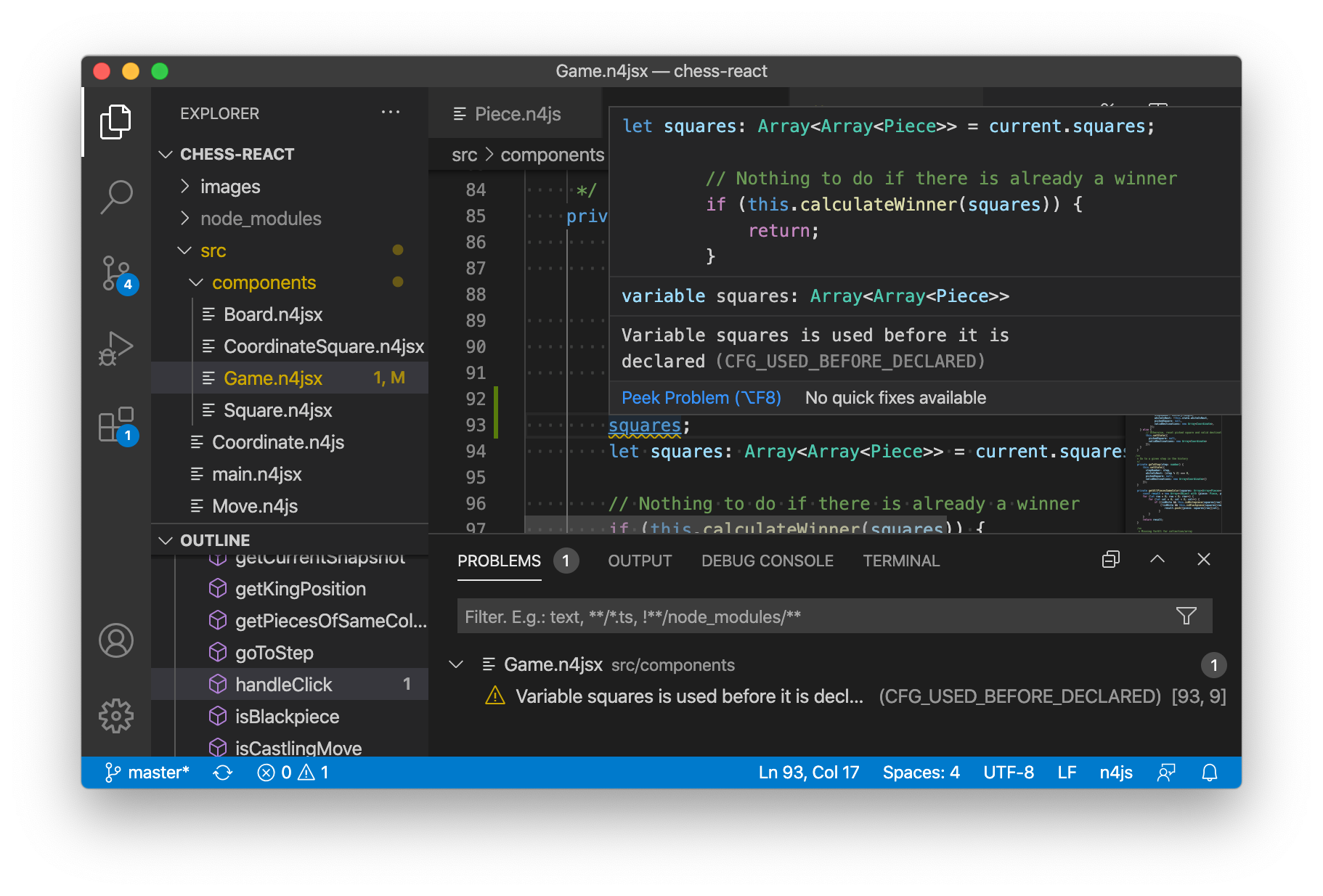 |
| An N4JS project in VSCode with the N4JS language extension |
Our language extension for N4JS is hosted at the Microsoft VSCode Marketplace and will be updated regularly by our Jenkins jobs. Versions will be kept in sync with the language version, compiler version and version of the N4JS libraries to avoid incompatible setups. At the moment, the LSP server supports all main features of the language server protocol (LSP) such as validation, content assist, outline view, jump to definition and implementation, open symbol, the rename refactoring and many more. In addition, it will also generate output files whenever a source change is detected. We therefore heavily improved the incremental LSP builder of the Xtext framework and plan to migrate back those changes to the Xtext repository. For the near future we plan to work on stability, performance and also to support some of the less frequently used LSP features.
When looking back, development of N4JS has been based on the Xtext framework from the start and thus it was straightforward to build an Eclipse-based IDE as our main development tool. Later on, we also implemented a headless compiler used for manual and automated testing from the command line. The development of the compiler already indicated some problems stemming from the tight integration of the Eclipse and the Xtext frameworks together with our language specific implementations. To name an example, we had two separate builder implementations: one for the IDE and the other for the headless compiler. Since the Eclipse IDE is using a specific workspace and project model, we also had two implementations for this abstraction. Another important problem we faced with developing an Eclipse-based IDE was that at some points we had to implement UI tests using the SWTBot framework. For us, SWTBot tests turned out to be very hard to develop, to maintain, and to keep from becoming flaky. Shifting to LSP-based development tools, i.e. the headless compiler and an LSP server, allows us to overcome the aforementioned problems.
Users of N4JS now have the option to either use our extension for VSCode or integrate our LSP server into their favorite IDE themselves, even into the Eclipse IDE. They also benefit from more lightweight tools regarding disk size and start-up performance, as well as a better integration into well-known tools from the JavaScript development ecosystem.